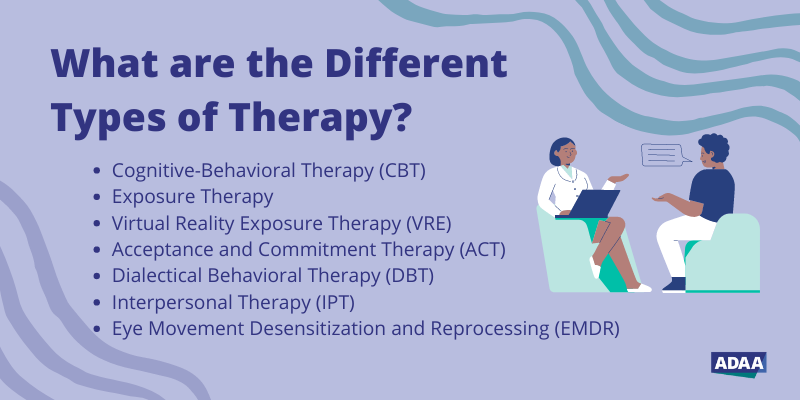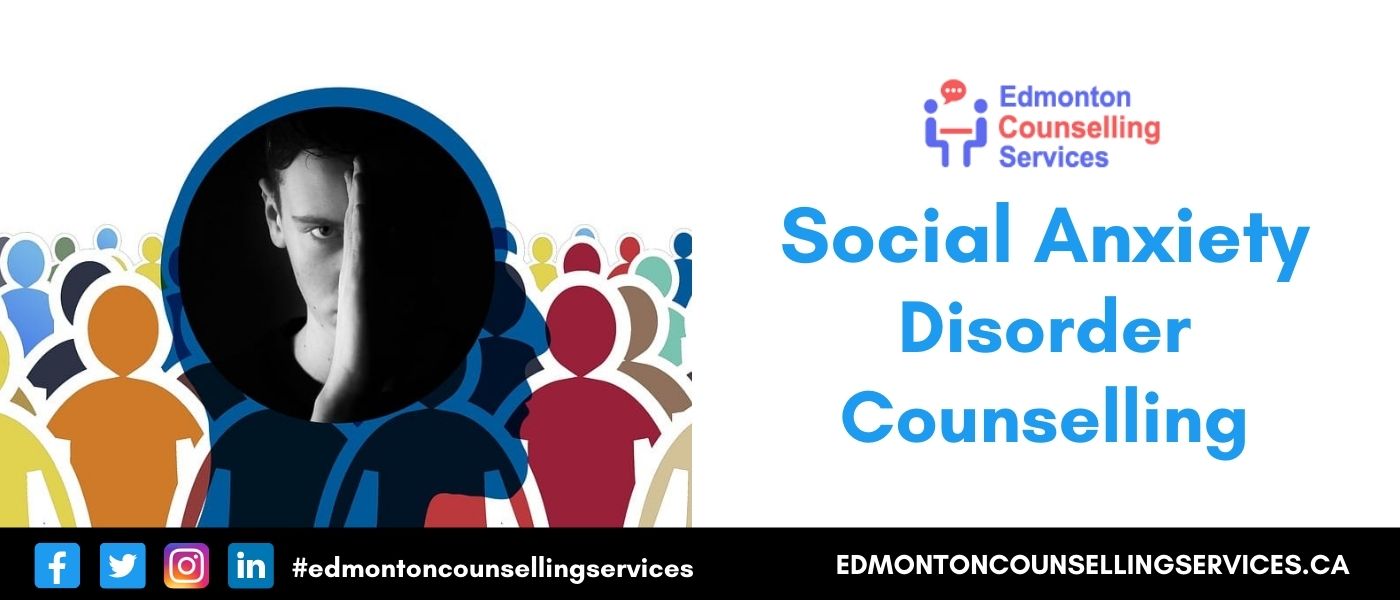Evidence-based counselling for anxiety with empathetic guidance
Discovering Various Approaches in Coaching for Anxiety Problem for Lasting Change
When tackling anxiousness conditions, it's necessary to check out a range of counseling strategies. Each technique uses one-of-a-kind understandings and tools to help you handle your symptoms properly. You could discover that integrating strategies can generate the most effective outcomes. Recognizing the subtleties of these approaches is vital to cultivating lasting change. What if the ideal combination could release a brand-new degree of emotional health for you?
Comprehending Anxiousness Problems: A Short Review
Anxiety disorders, which affect countless individuals worldwide, can significantly impact life. You could experience overwhelming feelings of anxiety or stress that appear uncontrollable. These sensations can result in physical signs and symptoms like a racing heart, sweating, and even lightheadedness. Typical sorts of stress and anxiety problems include generalised anxiousness condition, panic attack, and social anxiety condition. Each has one-of-a-kind signs, but they all share a tendency to interrupt your regular and relationships.Understanding the root causes of your stress and anxiety is crucial. It may stem from genetics, brain chemistry, or life experiences. Identifying your triggers can assist you handle your reactions better. It is essential to keep in mind that you're not alone in this battle. Lots of people deal with similar challenges, and seeking help is a strong step toward sensation much better. By learning more about anxiety disorders, you're already on the path to understanding and managing your condition better.
Cognitive-Behavioral Therapy: Challenging Unfavorable Thought Patterns

Identifying Unfavorable Idea Triggers
When you run into minutes of distress, identifying the certain triggers behind your negative thoughts can be necessary in taking care of anxiety. Start by paying attention to situations that provoke sensations of fear or anxiety. Is it a congested space, a forthcoming deadline, or a conversation with certain people? Jot down these circumstances in a journal. This will certainly aid you identify patterns in your reasoning. Likewise, notice physical feelings that accompany your unfavorable ideas, like an auto racing heart or rigidity in your chest. By determining these triggers, you get insight right into what's fueling your anxiety. Recognizing these connections is the initial step in challenging those ideas and eventually reclaiming control over your psychological responses.

Changing Thoughts With Positives
Testing negative thought patterns is a crucial action in changing your attitude and decreasing stress and anxiety. You might typically discover yourself entraped in cycles of insecurity or devastating thinking. Instead of letting these ideas dictate your sensations, method changing them with favorable affirmations or sensible choices. For instance, when you assume, "I can not handle this," move it to, "I can take care of difficulties one step at a time (Counseling services for anxiety)." This straightforward adjustment can greatly influence your mood. Frequently recognizing and responding to these negative ideas helps create a healthier inner discussion. Keep in mind, it takes time and initiative, however continually exercising this method can cause long-term change, encouraging you to deal with anxiousness with renewed confidence and resilience
Building Coping Techniques Together
Replacing adverse thoughts is just the start of handling anxiousness successfully. To develop long lasting change, you require to build coping approaches that equip you. Cognitive-Behavioral Therapy (CBT) aids you identify and challenge those unhelpful idea patterns. With each other, you and your therapist can check out just how these ideas effect your sensations and behaviors.Start by creating practical strategies, like journaling or mindfulness workouts, that enable you to challenge stress and anxiety head-on. When you encounter your fears slowly, you'll find out to react in a different way.

Mindfulness and Acceptance-Based Approaches: Growing Present-Moment Recognition
As you browse the intricacies of stress and anxiety, including mindfulness and acceptance-based approaches can substantially enhance your capability to cultivate present-moment recognition. By focusing on the present moment, you'll discover that you can observe your ideas and feelings without judgment. This method aids you recognize your anxiousness without really feeling bewildered by it.Engaging in mindfulness workouts, such as deep breathing, body scans, or directed reflections, permits you to ground yourself in your current experience. Acceptance-based approaches motivate you to embrace your emotions rather than combat against them. They lose their power over you.Incorporating these practices into your daily routine can change exactly how you respond to anxiousness when you approve your sensations. You'll develop strength and find out to navigate difficult circumstances with higher ease. Eventually, cultivating present-moment recognition lays the structure for lasting change, encouraging you to lead a more fulfilling life.
Direct Exposure Treatment: Facing Anxieties Progressively
Direct exposure treatment helps you confront your concerns in a gradual means, making it much less overwhelming. You'll discover techniques to encounter anxiety-provoking scenarios step by action, while also building coping strategies to manage your responses. This method encourages you to take control and reduce anxiousness with time.
Progressive Exposure Techniques
When facing anxiety, progressively challenging your fears can be an effective means to restore control. This strategy, referred to as steady direct exposure, involves gradually revealing on your own to the situations or objects that trigger your anxiousness. Start with much less intimidating situations and slowly function your means as much as even more difficult ones. As an example, if you're terrified of public speaking, you might start by talking in front of a mirror, after that progress to sharing ideas with a pal, and ultimately address a small group. Each action assists desensitize you to the anxiety, building your self-confidence gradually. Bear in mind, it's important to speed on your own and commemorate tiny victories as you relocate with this procedure, strengthening your capability to take care of anxiousness properly.
Building Coping Strategies
Structure reliable coping more info techniques is vital for taking care of stress and anxiety, especially as you face your fears progressively. One effective approach is exposure therapy, where you start by facing your worries in a controlled fashion. Begin with much less frightening situations and gradually work your way as much as more difficult scenarios. This gradual exposure helps desensitize you to anxiety activates, making them less overwhelming.Incorporate relaxation techniques, such as deep breathing or mindfulness, to calm your mind throughout exposure. Track your progress, commemorating small victories along the road to increase your confidence. Remember, it's okay to take your time; the objective isn't perfection yet constant improvement. By developing these strategies, you'll encourage yourself to browse anxiety and embrace life much more completely.
Psychodynamic Therapy: Revealing Root Reasons of Anxiety
Psychodynamic therapy discovers the unconscious mind, disclosing the root triggers of your anxiety - Counseling services for anxiety. By examining your thoughts, sensations, and past experiences, this technique assists you uncover underlying disputes and unresolved problems that might contribute to your present anxiousness. You'll deal with a specialist to examine childhood years experiences, partnerships, and emotional patterns that shape your reactions today.As you obtain understanding right into these much deeper layers of your psyche, you'll begin to identify how past events affect your existing behavior. This understanding can bring about catharsis, allowing you to process emotions you might have suppressed.Through the restorative partnership, you can additionally recognize defense reaction that might have developed with time, providing a clearer path to transform. Inevitably, psychodynamic therapy outfits you with the devices to resolve your stress and anxiety at its core, advertising long-term transformation in your psychological well-being
Integrative and Alternative Techniques: Integrating Techniques for Greater Effectiveness
Integrating various restorative techniques can boost your journey towards managing anxiety better. By integrating elements from cognitive-behavioral therapy, mindfulness techniques, and alternative techniques, you can produce an individualized approach that resolves your special requirements. You may use cognitive-behavioral methods to test unfavorable thought patterns while including mindfulness exercises to ground on your own in the present moment.Additionally, exploring holistic practices such as yoga exercise or meditation can promote leisure and lower anxiety signs and symptoms. This blend permits you to establish higher self-awareness and resilience.Experimenting with these diverse approaches can aid you discover what resonates most with you. Keep in mind, it's concerning discovering a synergy that works, rather than staying with a solitary technique. This integrative approach not only uses immediate alleviation yet likewise promotes long-term skills for handling anxiety, equipping you to redeem control over your life.
The Function of Assistance Systems: Structure Resilience Via Link
While it might seem that managing anxiousness is a singular trip, having a strong assistance system can play a crucial function in your strength. Surrounding on your own with compassionate close friends, family members, or support groups produces a safe area where you can openly share your experiences and sensations. You remind on your own that you're not alone in this struggle.These partnerships supply encouragement and can provide practical coping methods that have actually functioned for others when you attach with others. It's likewise a chance to acquire point of view; friends can help you see circumstances in a different way, lowering sensations of isolation.Moreover, emotional assistance cultivates a sense of belonging, which can substantially alleviate anxiousness signs and symptoms. By leaning on your support group, you can develop durability and deal with difficulties better. Keep in mind, connecting for help signifies strength, and it can make all the difference in your journey toward handling stress and anxiety.
Often Asked Questions
What Are the Usual Signs And Symptoms of Stress And Anxiety Disorders?
You could experience uneasyness, exhaustion, difficulty focusing, impatience, muscle mass tension, and sleep disturbances. Physical symptoms can include quick heartbeat, sweating, and shivering. Identifying these signs early can assist you seek ideal support and therapy.

For How Long Does Therapy Generally Last for Anxiousness Conditions?
Therapy for anxiousness conditions generally lasts anywhere from a few weeks to numerous months. It actually relies on your private requirements, development, and the techniques your therapist makes use of to assist you manage your stress and anxiety effectively.
Can Medicine Be Made Use Of Alongside Treatment for Anxiousness?
Yes, medicine can certainly be utilized alongside therapy for stress and anxiety. Incorporating both methods often enhances treatment efficiency, helping you manage symptoms while checking out underlying problems via counseling. Constantly consult your medical care supplier for tailored suggestions.
Are There Self-Help Methods for Taking Care Of Anxiety?
Yes, there are several self-help techniques for taking care of anxiousness. You can exercise mindfulness, engage in regular exercise, preserve a balanced diet plan, develop a regular, and make use of deep breathing techniques to help in reducing stress and anxiety signs and symptoms effectively.
How Do I Know if I Need Professional Help for Anxiety?
You ought to think about seeking expert assistance for stress and anxiety if it disrupts day-to-day live, causes significant distress, or if self-help approaches aren't working. Count on your impulses; connecting can result in better coping skills and support. Common kinds of stress and anxiety disorders include generalised stress and anxiety problem, panic condition, and social anxiety disorder. When you come across moments of distress, recognizing the particular triggers behind your negative ideas can be essential in handling anxiousness. Replacing negative thoughts is just the beginning of managing anxiousness effectively. By examining your ideas, feelings, and past experiences, this technique assists you reveal underlying disputes and unresolved concerns that may add to your current stress and anxiety. It's additionally a possibility to obtain point of view; good friends can help you see scenarios in a different way, minimizing sensations of isolation (Counseling services for anxiety).Moreover, emotional support fosters a feeling of belonging, which can greatly reduce stress and anxiety signs and symptoms